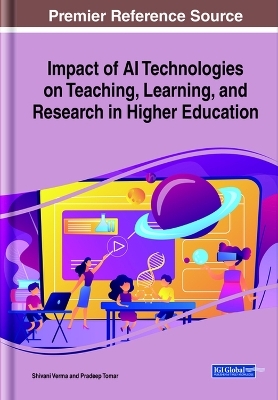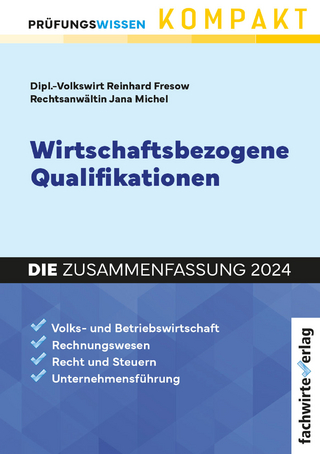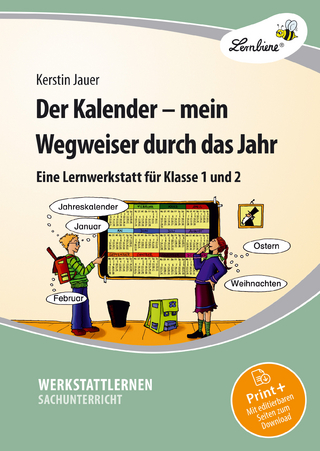
Impact of AI Technologies on Teaching, Learning, and Research in Higher Education
Business Science Reference (Verlag)
978-1-7998-4763-2 (ISBN)
Within higher education, there are enormous untapped opportunities for product/services companies, administrators, educators, start-ups. and technology professionals to begin embracing artificial intelligence (AI) across the student ecosystem and infuse innovation into traditional academic processes by leveraging disruptive technologies. This type of human-machine interface presents the immediate potential to change the way we learn, memorize, access, and create information. These solutions present new openings for education for all while fostering lifelong learning in a strengthened model that can preserve the integrity of core values and the purpose of higher education.
Impact of AI Technologies on Teaching, Learning, and Research in Higher Education explores the phenomena of the emergence of the use of AI in teaching and learning in higher education, including examining the positive and negative aspects of AI. Recent technological advancements and the increasing speed of adopting new technologies in higher education are discussed in order to predict the future nature of higher education in a world where AI is part of the fabric of universities. The book also investigates educational implications of emerging technologies on the way students learn and how institutions teach and evolve. Finally, challenges for the adoption of these technologies for teaching, learning, student support, and administration are addressed. Highlighting such tools as machine learning, natural language processing, and self-learning systems, this scholarly book is of interest to university administrators, educational software developers, instructional designers, policymakers, government officials, academicians, researchers, and students, as well as international agencies, organizations, and professionals interested in implementing AI in higher education.
Dr. Verma earned her Ph.D. from M. J. P. Rohilkhand University, Bareilly, and Master of Science (M.Sc.) in (Major- Human Development and Family Studies, Minor- Foods and nutrition) from G. B. Pant University of Agriculture and Technology, Pantnagar, Uttarakhand. Dr. Verma also earned degree of MBA. Dr. Verma has excellent teaching and research as well as vast administrative experience at collage level on various posts like HoD, Scholarship Incharge, Examination Coordinator, Time Table, Admission etc. She is also a member of Indian Science Congress Association, Society for Community Mobilization and Sustainable Development, Uttar Pradesh Govt. College Academic Society, Uttar Pradesh, INDIA, and Home Science Society of India. She is also qualified the National Eligibility Test (NET) for Lecturership. Dr. Verma was awarded India Development Education Award in World Children Summit, New Delhi and Women Empowerment and Livelyhood (WEAL) Award in World Women Summit, New Delhi. She delivered expert talks at FDP, workshops, national and international conferences. She has organized various conferences and seminar at national and international level. Apart from teaching, she has also been involved in research activities. She has contributed more than 50 papers/articles in national/international journals and conferences. She served as a member of the editorial board and reviewer for some Journals and national/international conferences. Pradeep Tomar has worked as a faculty member in the School of Information and Communication Technology, Gautam Buddha University, Greater Noida, INDIA since 2009. Dr. Tomar earned a Ph.D. from the Department of Computer Science & Applications, M. D. University, Rohtak, Haryana, INDIA. Before joining Gautam Buddha University, he worked as a Software Engineer in a multi-national company, Noida and lecturer in M. D. University, Rohtak, Haryana and Kurukshetra University Kurukshetra, Haryana. Dr. Tomar has good teaching, research and software development experience as well as vast administrative experience at a university level on various posts like research coordinator, examination coordinator, admission coordinator, programme coordinator, time table coordinators, proctor and hostel warden. Presently he is also working as a Treasurer in CSI, Noida Chapter. Dr. Tomar is also a member of IEEE, IEEE Computer Society, Computer Society of India (CSI), Indian Society for Technical Education (ISTE), Indian Science Congress Association (ISCA), International Association of Computer Science and Information Technology (IACSIT) and International Association of Engineering (IAENG). He served as a reviewer of journals and conferences and worked as an advisory board member in national and international conferences. Dr. Tomar has qualified the National Eligibility Test (NET) for Lecturership in Computer Applications in 2003, Microsoft Certified Professional (MCP) in 2008, SUN Certified JAVA Programmer (SCJP) for the JAVA platform, standard edition 5.0 in 2008 and qualified the IBM Certified Database Associate - DB2 9 Fundamentals in 2010. Two books Teaching of Mathematics and Communication and Information Technology at national levels have been authored by Dr. Tomar. Dr. Tomar has been awarded with Bharat Jyoti Award by India International Friendship Society in the field of Technology in 2012. He has been awarded for the Best Computer Faculty award by Govt. of Pondicherry and ASDF society. His biography is published in Who's Who Reference Asia, Volume II. Several technical sessions in national and international conferences had been chaired by Dr. Tomar and he delivered expert talks in FDP, workshops, national and international conferences. Three conferences have been organized by Dr. Tomar: one national conference with COMMUNE group and two international conferences, in which one international ICIAICT 2012 was organized with CSI, Noida Chapter and second international conference 2012 EPPICTM was organized in collaboration with MTMI, USA, University of Maryland Eastern Shore, USA and Frostburg State University, USA at School of Information and Communication Technology, Gautam Buddha University, Greater Noida, INDIA. Apart from teaching, researches in the areas of software engineering are being guided by Dr. Tomar. He has also contributed more than 65 papers/articles in national/international journals and conferences. His major current research interest is in Component-Based Software Engineering (CBSE) and IoT.
| Erscheinungsdatum | 02.09.2020 |
|---|---|
| Sprache | englisch |
| Maße | 178 x 254 mm |
| Themenwelt | Schulbuch / Wörterbuch ► Unterrichtsvorbereitung ► Unterrichts-Handreichungen |
| Sozialwissenschaften ► Pädagogik | |
| ISBN-10 | 1-7998-4763-2 / 1799847632 |
| ISBN-13 | 978-1-7998-4763-2 / 9781799847632 |
| Zustand | Neuware |
| Haben Sie eine Frage zum Produkt? |
aus dem Bereich


